Elizabeth Blackwell: The Woman of Steel
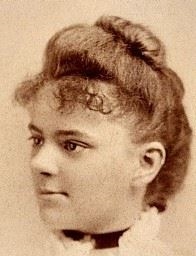 The Woman of Steelhttps://civilwarrx.blogspot.com/2016/06/elizabeth-blackwell-abolitionist.html
The Woman of Steelhttps://civilwarrx.blogspot.com/2016/06/elizabeth-blackwell-abolitionist.html Supermanwww.dccomics.com"Tell me who you admire and I'll tell you who you are" (qtd. in Harper). In the essay “How Should We Choose Our Heroes,” Reverend Charles Harper used the ancient Greek proverb to accentuate how heroes delineate the character of those who follow them. As people’s ideals and values align with whomever they admire, society learns to live life by their heroes’ precedent. This can be both positive and negative, for no matter what a “hero” does, people will always feel they should do the same. Therefore, it is vital for the hero to possess traits that truly deserve recognition. The most common example of a hero worthy of veneration is the fictional superhero Superman. He is a person with unending perseverance and a strong sense of morality, which are both distinctive qualities of a typical hero. Similarly, anyone else who demonstrates these traits is considered heroic as well. Whether they be a child who stands up to a bully, a woman who donates money towards helping the destitute, or a leader who demands the end of segregation despite life-threatening lash back, heroes must represent virtuous qualities like morality and tenacity. Though they may encounter trials and tribulations, heroes persist towards their ambitions with a superhuman-like quality. In addition, my personal view is that heroic figures must have the willpower to uphold their values rather than giving into peer pressure. They ignore those who ridicule them, for heroes know that upholding their righteous beliefs is more significant than popularity. Similar to the Man of Steel himself, a hero perseveres through major obstacles to reach her goals while maintaining her ethics. A hero that fulfills these requirements of strong morals and firm determination is a woman by the name of Dr. Elizabeth Blackwell.
Supermanwww.dccomics.com"Tell me who you admire and I'll tell you who you are" (qtd. in Harper). In the essay “How Should We Choose Our Heroes,” Reverend Charles Harper used the ancient Greek proverb to accentuate how heroes delineate the character of those who follow them. As people’s ideals and values align with whomever they admire, society learns to live life by their heroes’ precedent. This can be both positive and negative, for no matter what a “hero” does, people will always feel they should do the same. Therefore, it is vital for the hero to possess traits that truly deserve recognition. The most common example of a hero worthy of veneration is the fictional superhero Superman. He is a person with unending perseverance and a strong sense of morality, which are both distinctive qualities of a typical hero. Similarly, anyone else who demonstrates these traits is considered heroic as well. Whether they be a child who stands up to a bully, a woman who donates money towards helping the destitute, or a leader who demands the end of segregation despite life-threatening lash back, heroes must represent virtuous qualities like morality and tenacity. Though they may encounter trials and tribulations, heroes persist towards their ambitions with a superhuman-like quality. In addition, my personal view is that heroic figures must have the willpower to uphold their values rather than giving into peer pressure. They ignore those who ridicule them, for heroes know that upholding their righteous beliefs is more significant than popularity. Similar to the Man of Steel himself, a hero perseveres through major obstacles to reach her goals while maintaining her ethics. A hero that fulfills these requirements of strong morals and firm determination is a woman by the name of Dr. Elizabeth Blackwell.
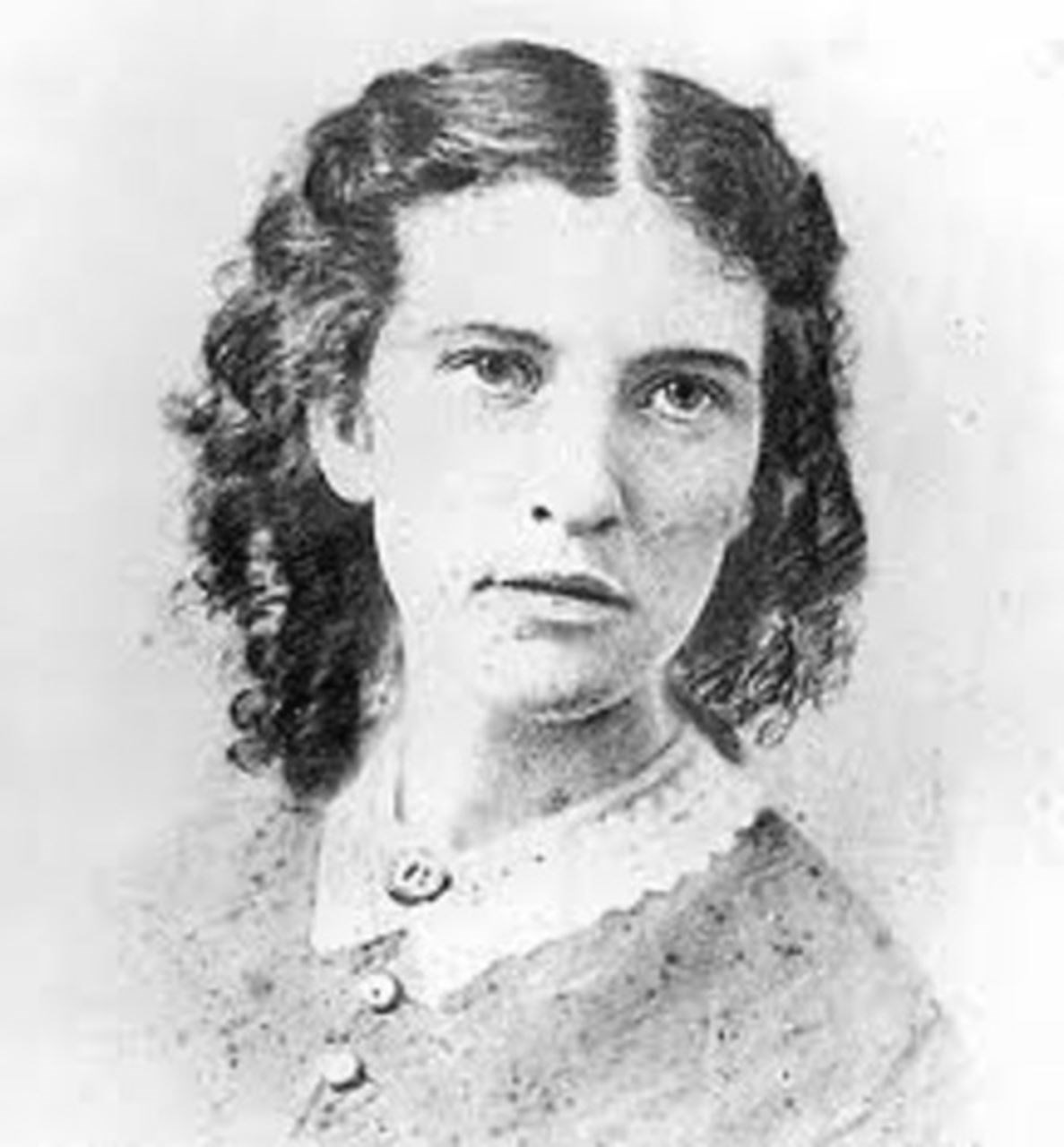 Elizabeth Blackwell's Childhoodhttps://www.theodysseyonline.com/remembering-dr-elizabeth-blackwellElizabeth Blackwell was the first woman to graduate medical school and become an official medical practitioner. Born on February 3, 1821, Blackwell spent her childhood growing within a society that believed women should play minimal roles in the world and live in the shadows of men. This restricting stereotype sparked a drive in Blackwell to rebel against societal normalities, utilizing her talents towards her dream of becoming the first female doctor. Despite numerous rejected college applications, Elizabeth Blackwell finally acquired an acceptance letter into New York’s Geneva Medical College. Though she was originally persecuted by the teachers and students, she eventually earned their respect, graduating at the top of her class and as the first woman to receive a full medical education. For several years afterwards, she served as a physician for multiple hospitals until she was able to open her own. With her sister’s aid, Blackwell fulfilled her dreams and goals by founding the New York Dispensary for Poor Women and Children, the New York Infirmary for Indigent Women and Children, and the first all-women’s medical college. Through her efforts, she also received recognition by the Medical Council of England, becoming the first woman acknowledged as an official doctor. By definition, a hero must possess a set standard of morality accompanied by the unwavering spirit to make her dreams a reality. Blackwell demonstrated both of these qualities throughout her lifetime, and she therefore met the expectations of a societal heroine. As the “Superwoman” of her generation, Elizabeth Blackwell thus manifested qualities of a notable, timeless hero by maintaining a moral lifestyle by staying true to her values no matter what consequences she faced and exhibiting resilience despite her impediments, proving that women were not weak like society presented them as.
Elizabeth Blackwell's Childhoodhttps://www.theodysseyonline.com/remembering-dr-elizabeth-blackwellElizabeth Blackwell was the first woman to graduate medical school and become an official medical practitioner. Born on February 3, 1821, Blackwell spent her childhood growing within a society that believed women should play minimal roles in the world and live in the shadows of men. This restricting stereotype sparked a drive in Blackwell to rebel against societal normalities, utilizing her talents towards her dream of becoming the first female doctor. Despite numerous rejected college applications, Elizabeth Blackwell finally acquired an acceptance letter into New York’s Geneva Medical College. Though she was originally persecuted by the teachers and students, she eventually earned their respect, graduating at the top of her class and as the first woman to receive a full medical education. For several years afterwards, she served as a physician for multiple hospitals until she was able to open her own. With her sister’s aid, Blackwell fulfilled her dreams and goals by founding the New York Dispensary for Poor Women and Children, the New York Infirmary for Indigent Women and Children, and the first all-women’s medical college. Through her efforts, she also received recognition by the Medical Council of England, becoming the first woman acknowledged as an official doctor. By definition, a hero must possess a set standard of morality accompanied by the unwavering spirit to make her dreams a reality. Blackwell demonstrated both of these qualities throughout her lifetime, and she therefore met the expectations of a societal heroine. As the “Superwoman” of her generation, Elizabeth Blackwell thus manifested qualities of a notable, timeless hero by maintaining a moral lifestyle by staying true to her values no matter what consequences she faced and exhibiting resilience despite her impediments, proving that women were not weak like society presented them as.
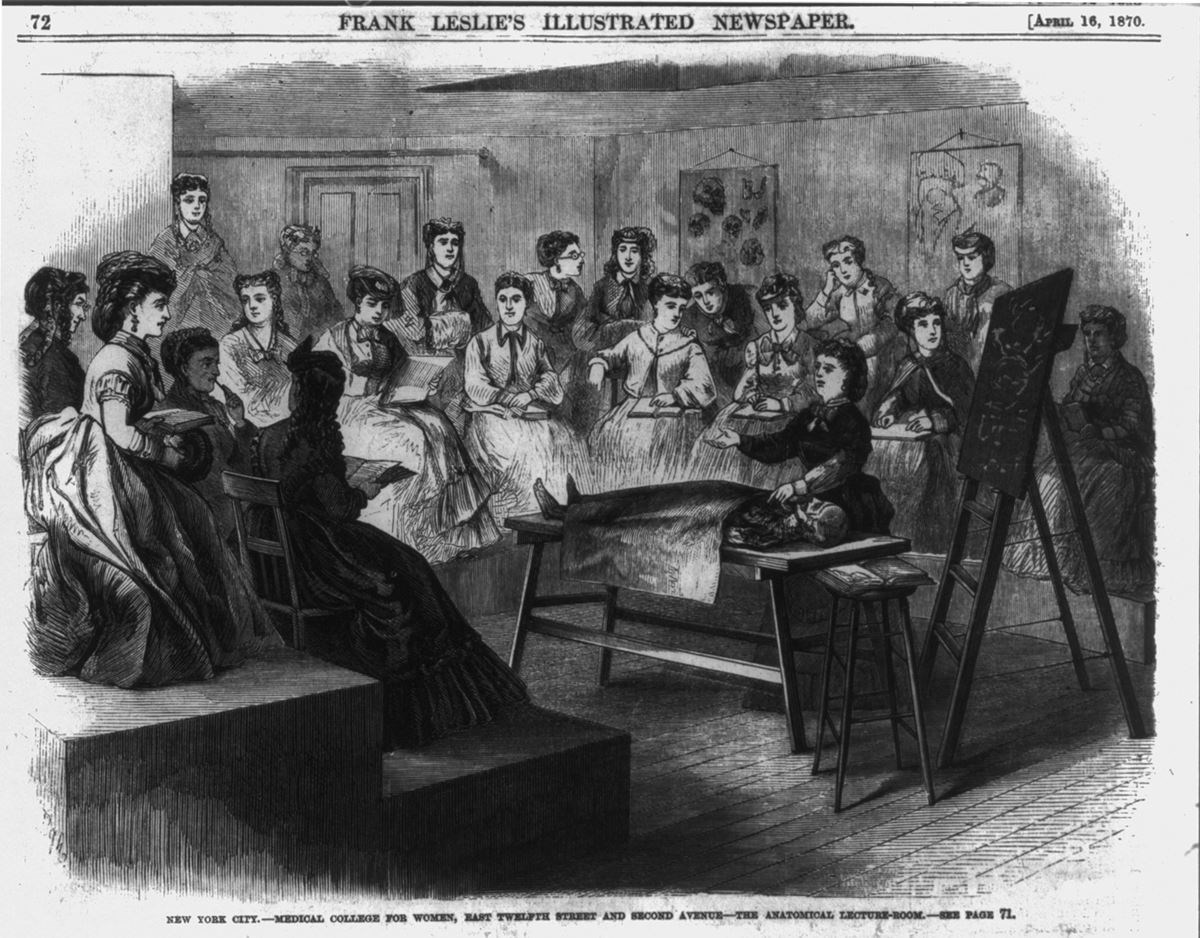 Pursuit in Medicine as a Female Physicianhttps://www.nlm.nih.gov/exhibition/blackwell/career.htmlGuided by her unwavering values, Blackwell became an ethical inspiration for generations to follow by displaying a sense of firm morality through her crusade for equality in the medical field and her equal treatment towards others. One instance where Blackwell exemplified steadfast morals was her decision to openly serve as a female doctor. When she resolved to pursue medicine in the first place, one of her school teachers advised Blackwell to disguise her gender, for female physicians were treated with little respect and dignity. However, Blackwell decided against the idea: “But...the suggestion of disguise tempted me [only] for a moment. It was to my mind a moral crusade on which I had entered, a course of justice and common sense, and it must be pursued in the light of day, and with public sanction, in order to accomplish its end” (Blackwell 62). Blackwell was well aware of the challenges she would face as an openly female doctor, and she did consider the thought of presenting herself as a man to her peers. Disguising herself would make the process towards becoming physician much easier in the long run because she would not undergo the harsh ridicule based on her gender. Despite this, she chose to endure the hardships of being a female physician and embark on a “moral crusade” on a “course of justice and common sense.” Though her choice indeed resulted in public prejudice and discrimination against Blackwell, it was better than not fulfilling her morals and impersonating someone she was not. No matter what the public thought of her, Blackwell resolved to present herself openly as a woman and prove the societal stereotypes wrong, thus becoming a significant heroine for all women. Later in her lifetime, Blackwell also demonstrated morality through her equal treatment towards Southern Black fugitives. After opening the New York Dispensary for Poor Women and Children, Elizabeth Blackwell and her sister, Emily, opened a clinic together called the New York Infirmary for Indigent Women and Children on May 12, 1857. The first few years of running the infirmary passed rather smoothly until a specific incident occurred during the Civil War. When the United States issued the Emancipation Proclamation in September 1862, a common fallacy spread between many working-class Northerners. They believed that, despite its declaration to only free slaves from seceded states, the proclamation allowed the liberated slaves to appropriate Northerners’ jobs while the workers were drafted to fight. As a result, Northerners rebelled in hatred against Blacks, but Blackwell fought against their protest:
Pursuit in Medicine as a Female Physicianhttps://www.nlm.nih.gov/exhibition/blackwell/career.htmlGuided by her unwavering values, Blackwell became an ethical inspiration for generations to follow by displaying a sense of firm morality through her crusade for equality in the medical field and her equal treatment towards others. One instance where Blackwell exemplified steadfast morals was her decision to openly serve as a female doctor. When she resolved to pursue medicine in the first place, one of her school teachers advised Blackwell to disguise her gender, for female physicians were treated with little respect and dignity. However, Blackwell decided against the idea: “But...the suggestion of disguise tempted me [only] for a moment. It was to my mind a moral crusade on which I had entered, a course of justice and common sense, and it must be pursued in the light of day, and with public sanction, in order to accomplish its end” (Blackwell 62). Blackwell was well aware of the challenges she would face as an openly female doctor, and she did consider the thought of presenting herself as a man to her peers. Disguising herself would make the process towards becoming physician much easier in the long run because she would not undergo the harsh ridicule based on her gender. Despite this, she chose to endure the hardships of being a female physician and embark on a “moral crusade” on a “course of justice and common sense.” Though her choice indeed resulted in public prejudice and discrimination against Blackwell, it was better than not fulfilling her morals and impersonating someone she was not. No matter what the public thought of her, Blackwell resolved to present herself openly as a woman and prove the societal stereotypes wrong, thus becoming a significant heroine for all women. Later in her lifetime, Blackwell also demonstrated morality through her equal treatment towards Southern Black fugitives. After opening the New York Dispensary for Poor Women and Children, Elizabeth Blackwell and her sister, Emily, opened a clinic together called the New York Infirmary for Indigent Women and Children on May 12, 1857. The first few years of running the infirmary passed rather smoothly until a specific incident occurred during the Civil War. When the United States issued the Emancipation Proclamation in September 1862, a common fallacy spread between many working-class Northerners. They believed that, despite its declaration to only free slaves from seceded states, the proclamation allowed the liberated slaves to appropriate Northerners’ jobs while the workers were drafted to fight. As a result, Northerners rebelled in hatred against Blacks, but Blackwell fought against their protest:
“Violent riots broke out in New York City for three days in July 1863... Buildings, including some a mere block from the infirmary, were burned to the ground. White infirmary patients demanded that the Blackwells discharge several expectant black mothers who had escaped the South, a demand with which the doctors refused to comply” (D. “Elizabeth Blackwell”).
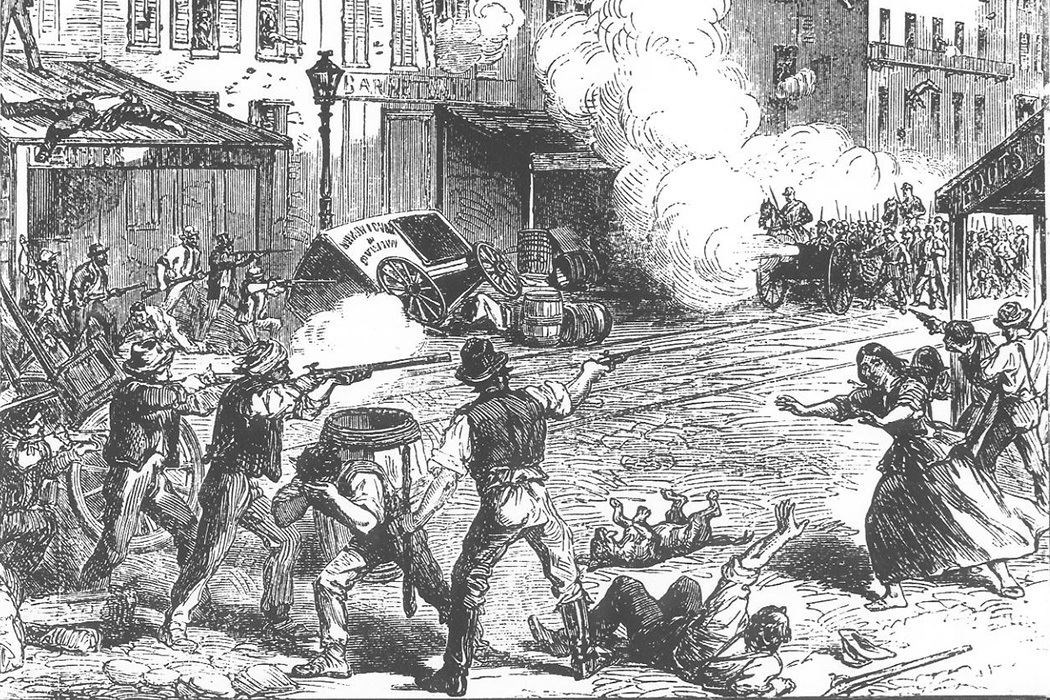 During a time when slavery was still common, vicious attacks ravaged the community surrounding Elizabeth Blackwell’s clinic, with their perpetrators demanding her to hand over her patients. One would believe that the Northerner’s actions elicited enough fear for her to comply with their orders. However, Dr. Blackwell believed that it was immoral to release patients, let alone a pregnant mother, from the infirmary’s care and witness them as subjects to a dangerous force of hatred. Even though patients were Black fugitives, Blackwell still treated them with humanity. Hence, the Northern workers’ threats were no match for Blackwell’s humanitarian values, and she rejected the Northerners’ intimidation. Blackwell’s noble reaction against the seemingly-dominant acts of terrorism was similar to that of a respected, heroic figure. When she was placed in a situation where the average citizen would give in to the evils of the world, she remained true to her ethics despite the challenges placed before her. Through these trials of morality and ethics, Blackwells’ rejection of prejudice and gender stereotypes accentuated her significant contributions to a more moral society.
During a time when slavery was still common, vicious attacks ravaged the community surrounding Elizabeth Blackwell’s clinic, with their perpetrators demanding her to hand over her patients. One would believe that the Northerner’s actions elicited enough fear for her to comply with their orders. However, Dr. Blackwell believed that it was immoral to release patients, let alone a pregnant mother, from the infirmary’s care and witness them as subjects to a dangerous force of hatred. Even though patients were Black fugitives, Blackwell still treated them with humanity. Hence, the Northern workers’ threats were no match for Blackwell’s humanitarian values, and she rejected the Northerners’ intimidation. Blackwell’s noble reaction against the seemingly-dominant acts of terrorism was similar to that of a respected, heroic figure. When she was placed in a situation where the average citizen would give in to the evils of the world, she remained true to her ethics despite the challenges placed before her. Through these trials of morality and ethics, Blackwells’ rejection of prejudice and gender stereotypes accentuated her significant contributions to a more moral society.
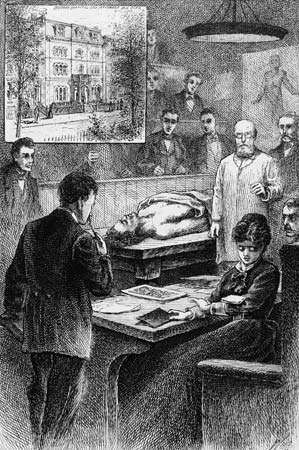 Harassment from her Peershttps://www.britannica.com/biography/Elizabeth-BlackwellIn addition, Elizabeth Blackwell not only symbolized strong will and exemplary morals, but she was also a woman worthy of admiration due to her constant perseverance through health and occupational struggles. During the window of time after she graduated medical school and before she opened her first official hospital, Blackwell strived towards becoming a surgeon. Along her journey, however, she faced a challenge that would halt her plans of surgical practice. An event at one of the hospitals she worked at caused a chemical to infect and blind Blackwell’s left eye. This disability forced her to abandon her dreams of surgery, but a letter she wrote to her concerned uncle showed her sadness was short-lived: “Fate certainly gave me a strange and sudden blow, but now I am up again strong and hopeful, and eager for work, and I beg uncle to feel quite sure that a brave soldier’s niece will never disgrace the colors she fights under; but will be proud of the wounds gained in a great cause, and resolve more strongly more than ever to ‘conquer or die’” (Blackwell 157). Despite her physical obstacle, her poor eyesight did not stop her from continuing to pursue her passion for medicine. She made sure her “wound” would not thwart her from helping others to the best of her ability. Due to her unstoppable determination to help others, Blackwell found new goals rather than remaining depressed about what she could not achieve. Her persistence truly proved her heroism, for heroes do not allow drawbacks to determine the rest of their lives. A second instance where Blackwell exemplified resilience was during her struggle to open a dispensary for poor citizens. Before opening their infirmary in New York, Blackwell and her sister first planned to open a facility that provided medical care for the destitute. Her plans were met with immediate disapproval from society, but Blackwell persevered:
Harassment from her Peershttps://www.britannica.com/biography/Elizabeth-BlackwellIn addition, Elizabeth Blackwell not only symbolized strong will and exemplary morals, but she was also a woman worthy of admiration due to her constant perseverance through health and occupational struggles. During the window of time after she graduated medical school and before she opened her first official hospital, Blackwell strived towards becoming a surgeon. Along her journey, however, she faced a challenge that would halt her plans of surgical practice. An event at one of the hospitals she worked at caused a chemical to infect and blind Blackwell’s left eye. This disability forced her to abandon her dreams of surgery, but a letter she wrote to her concerned uncle showed her sadness was short-lived: “Fate certainly gave me a strange and sudden blow, but now I am up again strong and hopeful, and eager for work, and I beg uncle to feel quite sure that a brave soldier’s niece will never disgrace the colors she fights under; but will be proud of the wounds gained in a great cause, and resolve more strongly more than ever to ‘conquer or die’” (Blackwell 157). Despite her physical obstacle, her poor eyesight did not stop her from continuing to pursue her passion for medicine. She made sure her “wound” would not thwart her from helping others to the best of her ability. Due to her unstoppable determination to help others, Blackwell found new goals rather than remaining depressed about what she could not achieve. Her persistence truly proved her heroism, for heroes do not allow drawbacks to determine the rest of their lives. A second instance where Blackwell exemplified resilience was during her struggle to open a dispensary for poor citizens. Before opening their infirmary in New York, Blackwell and her sister first planned to open a facility that provided medical care for the destitute. Her plans were met with immediate disapproval from society, but Blackwell persevered:
“Men hurled insults at her, and women avoided her on the street. Obscene letters flooded her mailbox. Worst of all, no patients came, and the local medical establishment flatly rejected her overtures. Unfazed, Blackwell borrowed money from friends to establish a clinic in the slums of lower Manhattan. The New York Dispensary for Poor Women and Children opened its doors in 1853 and was soon overflowing with patients” (C. “Elizabeth Blackwell”).
For decades during her medical practice, Blackwell had many setbacks as an openly female physician, including threats and derogatory insults. However, she never allowed the public’s sexist reaction to obstruct her from achieving her goals. She was degraded, but she remained persistent in her efforts to open the dispensary and eventually succeeded in doing so. By opening the New York Dispensary for Poor Women and Children, she proved to the world that female physicians could be just as independent in the medical field as men. Therefore, based on her unending resilience in spite of adversaries and optical disability, Blackwell upheld the quality of persistence and acted as a hero for all women.
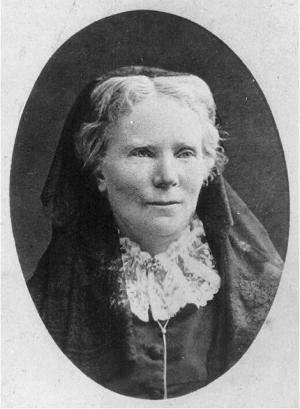 A Hero Of Determination and Moralityhttps://www.nwhm.org/education-resources/biographies/elizabeth-blackwellThrough sheer endeavoring and numerous actions of morality, Elizabeth Blackwell symbolized exemplary character and is a woman who truly deserves admiration. Though her peers recommended for Blackwell to disguise herself as a man to prevent societal ridicule for being a female physician, Blackwell strongly rejected the idea. Instead, she chose to rebel against society’s stereotype of only men succeeding in the medical field and remained determined to prove women’s capabilities as well. Her moral strength also appeared when she rebelled against the Northerners’ demands to release fugitive Black patients, stressing her morality in treating all people as equals. Additionally, Blackwell demonstrated resilience by quickly returning to her work as a medical practitioner despite the disappointment that she would never become a surgeon, and her determination also allowed her to successfully open a clinic and invalidate societal prejudices. In the words of Elizabeth Blackwell, “If society will not admit of women’s free development, then society must be remodeled” (qtd. by Michals). Blackwell’s life motto states that if someone wants change in society, they must evoke it themselves. Blackwell was not one to follow the crowd and live by the country’s male hierarchy, rather she chose to take action and actively counter it. As a result of a Blackwell’s continuous efforts to change societal flaws, her legacy lives on for centuries after her passing and remains an inspiration for generations to come. Even though she was the first woman to graduate from medical school and become legally registered as a physician, Blackwell’s true heroism is shown through her drive to become the best version of herself. I can deeply connect with Elizabeth Blackwell since she and I have similar medical aspirations, for I want to become a doctor as well. Becoming a female physician today is much easier due to the contributions of Elizabeth Blackwell. Blackwell remains an eternal inspiration for me by staying true to the ethics of humanity, which I believe is something everyone must apply to their daily lives. She has also inspired me to embrace myself as a woman no matter what trials may come my way, since I can always overcome them through sheer persistence. Without her contributions, the world may have continued to feed young girls the stereotype that women could never succeed in society more than men, and my aspirations to become a physician would have caused me to encounter social discrimination. Though she did not possess any superpowers nor immortality, I strongly believe Elizabeth Blackwell represented the “Superwoman” of her time and made significant impacts within the society she strove to amend.
A Hero Of Determination and Moralityhttps://www.nwhm.org/education-resources/biographies/elizabeth-blackwellThrough sheer endeavoring and numerous actions of morality, Elizabeth Blackwell symbolized exemplary character and is a woman who truly deserves admiration. Though her peers recommended for Blackwell to disguise herself as a man to prevent societal ridicule for being a female physician, Blackwell strongly rejected the idea. Instead, she chose to rebel against society’s stereotype of only men succeeding in the medical field and remained determined to prove women’s capabilities as well. Her moral strength also appeared when she rebelled against the Northerners’ demands to release fugitive Black patients, stressing her morality in treating all people as equals. Additionally, Blackwell demonstrated resilience by quickly returning to her work as a medical practitioner despite the disappointment that she would never become a surgeon, and her determination also allowed her to successfully open a clinic and invalidate societal prejudices. In the words of Elizabeth Blackwell, “If society will not admit of women’s free development, then society must be remodeled” (qtd. by Michals). Blackwell’s life motto states that if someone wants change in society, they must evoke it themselves. Blackwell was not one to follow the crowd and live by the country’s male hierarchy, rather she chose to take action and actively counter it. As a result of a Blackwell’s continuous efforts to change societal flaws, her legacy lives on for centuries after her passing and remains an inspiration for generations to come. Even though she was the first woman to graduate from medical school and become legally registered as a physician, Blackwell’s true heroism is shown through her drive to become the best version of herself. I can deeply connect with Elizabeth Blackwell since she and I have similar medical aspirations, for I want to become a doctor as well. Becoming a female physician today is much easier due to the contributions of Elizabeth Blackwell. Blackwell remains an eternal inspiration for me by staying true to the ethics of humanity, which I believe is something everyone must apply to their daily lives. She has also inspired me to embrace myself as a woman no matter what trials may come my way, since I can always overcome them through sheer persistence. Without her contributions, the world may have continued to feed young girls the stereotype that women could never succeed in society more than men, and my aspirations to become a physician would have caused me to encounter social discrimination. Though she did not possess any superpowers nor immortality, I strongly believe Elizabeth Blackwell represented the “Superwoman” of her time and made significant impacts within the society she strove to amend.
Page created on 5/23/2018 4:59:07 AM
Last edited 5/26/2018 2:55:17 PM
Works Consulted
Blackwell, Elizabeth. Pioneer Work in Opening the Medical Profession to Women:
Autobiographical Sketches. Schocken Books, 1977. Print.
"Elizabeth Blackwell." Contemporary Heroes and Heroines, vol. 4, Gale, 2000. Biography In
Context,http://link.galegroup.com/apps/doc/K1607000302/BIC?u=powa9245&sid=BIC&xid=65c2c55a. Accessed 5 Apr. 2018.
“Elizabeth Blackwell.” Edited by Debra Michals, National Women's History Museum, 2015,
www.nwhm.org/education-resources/biographies/elizabeth-blackwell. Accessed 15 Apr.
2018.
"Elizabeth Blackwell." DISCovering Biography, Gale, 2003. Research in Context,
http://link.galegroup.com/apps/doc/EJ2102100168/MSIC?u=powa9245&sid=MSIC&xid
=93af42c0. Accessed 5 Apr. 2018.
Harper, Charles. “How Should We Choose Our Heroes?” The MY HERO Project, 2017,
myhero.com/TeachersRoom/Show/9. Accessed 10 Apr. 2018.
